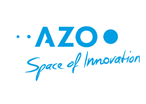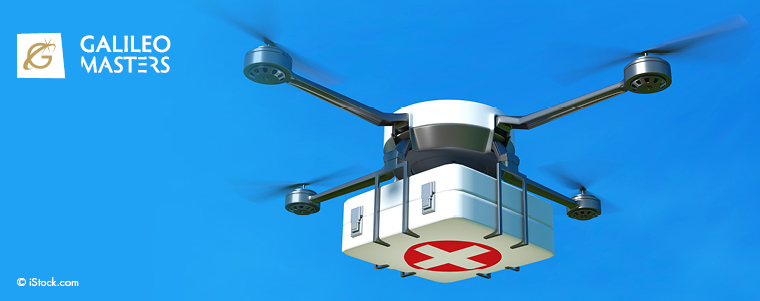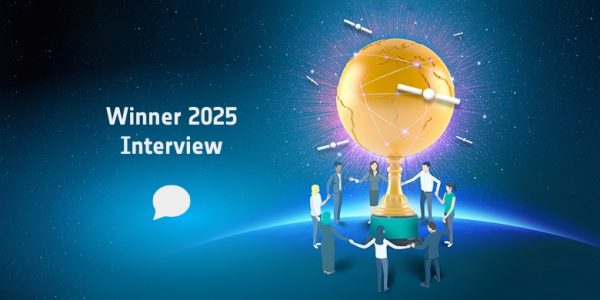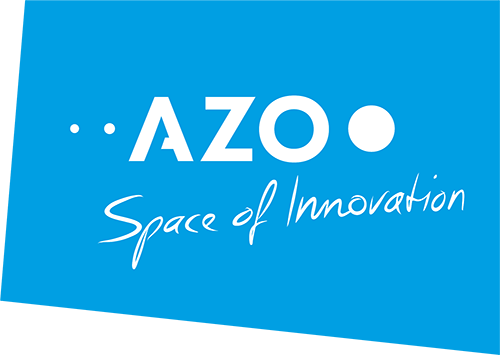The 2019 Galileo Masters UK Challenge winner MEDeus is a technology company with a vision to transform the healthcare industry by creating an Artificial Intelligence (AI)-based, autonomous drone delivery service. Their solution will efficiently transport medicines, blood, organs and many other items, between secure hospital sites. This novel system will improve patient care, save the National Health Service (NHS) money and drastically reduce carbon emissions from our roads. Compared to current ground couriers, their fully-electric drones will be faster, cheaper, and truly on-demand.
Regine Heue (RH), Head of Marketing & Communications at AZO interviews Hammad Jeilani (HJ), Director and Co-Founder at MEDeus Ltd.
RH: Please give us a sneak peek of your product and the team behind it.
HJ: We’re working to develop and operate the UK’s first commercial medical drone service. This is no simple task. The NHS is monolithic yet fractured, so we have to be versatile enough to adapt to the different medical needs, whilst also ready to scale across the entire country. We’ll use a hybrid drone design, which is both vertical take-off and landing and fixed wing to give us the best range to capacity ratio. And by using AI, our drones will operate autonomously and beyond visual line of sight. It doesn’t end there. Our technology has to fit perfectly within the NHS ecosystem to ensure we can offer a successful and streamlined service. As such, we’re developing our own software to integrate each and every piece of this enormous puzzle into any hospital network.
I am one of three Co-Directors and Co-Founders of MEDeus, along with Christopher Law and Thomas Franchi. We are the youngest NHS Clinical Entrepreneurs, a programme run by NHS England and NHS Improvement to enable healthcare professionals in their entrepreneurial endeavours. We’re all medical students and we’ve known each other for over eight years! Since the beginning, we’ve had a business mindset and a passion for exciting, innovative technology.
RH: Can you explain the three main ingredients of your recipe for success?
HJ: We are curious, confident and competitive. Our almost unabashed curiosity led us to question the status quo and step outside of our comfort zone. Right at the start of our journey, Christopher and I decided to visit the Pathology Laboratory, whilst on our hospital clinical placement, to talk to the technicians and managers. I remember being told we were the first medics to venture inside the lab! We learnt how they worked and heard their problems and at the end, the lead technician asked us to help in any way we could. That moment really stuck with the both of us. Our confidence gives us the resilience to constantly create and grab opportunities, even when we fail and fail again. Finally, we really do love competitions. There is no competition too big or small for us. If someone else can do it, we believe we can too!
RH: What do you expect from the EGNSS Accelerator and how do you think the initiative and its network will help you to kick-start your business case?
HJ: I hope the Galileo Incubation (formerly EGNSS Accelerator) will provide us with the means to fund our research activity as well as helping us to gain valuable Intellectual Property (IP). This would not only allow us to create our proof of concept but also make us investor friendly. As we’re attempting to take on a large task, we must always think how we can operate in a way that generates value in the long run. We are playing the long game and we are vigilant in ensuring we can survive whilst we create the necessary collaborations to set up our service. The Galileo Masters competition and Galileo Incubation have given us credibility and access to a vast network of highly specialised individuals who are world-leading experts in their fields. We are working hard to utilise this opportunity. As I write this, I am also working on our SPace Research and Innovation Network for Technology (SPRINT) application – which has only become feasible for us since we can fund it through our Accelerator prize.
RH: How and when did the idea for MEDeus emerge?
HJ: The business idea started off when we entered and won a UK Space Agency competition in 2018. The competition asked us to come up with ways in which we could use satellite data to improve life on earth. We thought of several ideas, but we simply did not connect with any of them. Then one day, I remember reading a pretty stark fact, which stated that over one million children, under the age of five, died due to the lack of access to pneumonia vaccines across the world. Now, pneumonia vaccines are available to anyone, but the fact that we couldn’t get those vaccines to certain people at the right time meant that they could not be saved. That resonated with us quite deeply. We wanted to help, and we wanted to make a difference. We also realised that the UK itself suffered from quite a few problems. There are people who live in very rural areas and others in isolated regions that are hard to reach. There are also problems in our cities, where the roads are very congested. After conducting our ground research, we found that logistical problems hampered almost every medical speciality and we decided to use drones for delivering bloods, medications and organs amongst many other items between NHS sites, for the benefit of the patient, the clinician and the hospital management staff. Therefore, we decided to go down a more sensible business route of setting up the medical drone service here in the U.K, where there are better regulations and greater security, before then exporting it internationally. In fact, we’re collaborating with key organisations to export our service, once ready, to two African nations for the delivery rapid diagnostic tests and medicines. So, our end vision has actually come around nicely in a loop.
RH: What were the main reasons to participate in the Galileo Masters?
HJ: We were actually encouraged by one of our mentors to get involved. I decided to take a closer look at Galileo, and I was impressed with how high-level the competition was, especially since last-years UK winner was Airbus. I’ll be honest and say I didn’t expect to get through, so it was a nice surprise to hear we hadn’t just been invited to Finland to pitch for further prizes, but we had also been nominated 1st place in the UK!
RH: Let’s reach for the stars – what is going to happen in MEDeus’ future?
HJ: We’re planning on going big. I see a future where MEDeus is operating all the medical drone delivery services across the United Kingdom, delivering high value packages to doctors and patients. I see a future where MEDeus champions the voice of our clinicians, technicians and hospital staff in this rapidly changing arena. We hope to help Government and regulatory bodies create new legislation and we will lobby all parties to understand the value of the medical sector in the drone industry. I see a future where we expand internationally and work within various healthcare settings, particularly the developing world. Through all of this, one of our deepest visions is to establish a brand which brings truly cutting-edge innovation into healthcare.
RH: Thank you very much Hammad for this interesting interview.
If you are interested to find out more about the Galileo Masters, just take a look here!





Comments are closed.